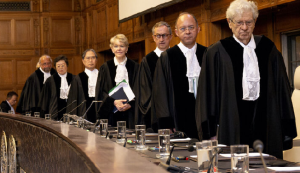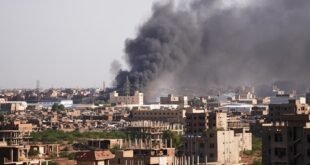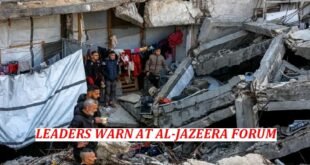24-05-2024
THE HAGUE: The top United Nations court ordered Israel on Friday to immediately halt its military offensive in the southern Gaza city of Rafah but stopped short of ordering a cease-fire for the enclave. While Israel is unlikely to comply with the order, it will ratchet up the pressure on the increasingly isolated country.
Criticism of Israel’s conduct in the war in Gaza has been growing, particularly once it turned its focus to Rafah. This week alone, three European countries announced they would recognize a Palestinian state, and the chief prosecutor for another international court requested arrest warrants for Israeli leaders, along with Hamas officials.
 Israeli Prime Minister Benjamin Netanyahu is also under heavy pressure at home to end the war, which was triggered when Hamas-led militants stormed into Israel, killing 1,200 people, most civilians, and taking some 250 captive. Thousands of Israelis have joined weekly demonstrations calling on the government to reach a deal to bring the hostages home, fearing that time is running out.
Israeli Prime Minister Benjamin Netanyahu is also under heavy pressure at home to end the war, which was triggered when Hamas-led militants stormed into Israel, killing 1,200 people, most civilians, and taking some 250 captive. Thousands of Israelis have joined weekly demonstrations calling on the government to reach a deal to bring the hostages home, fearing that time is running out.
While the ruling by the International Court of Justice is a blow to Israel’s international standing, the court does not have a police force to enforce its orders. In another case on its docket, Russia has so far ignored a 2022 order by the court to halt its full-scale invasion of Ukraine.
Earlier, Israel signaled it, too, would brush off an ICJ order to stop its operations. “No power on earth will stop Israel from protecting its citizens and going after Hamas in Gaza,” Avi Hyman, the government spokesperson, said in a press briefing Thursday.
Immediately after the ruling, Netanyahu announced that he would hold a special ministerial meeting to decide how to respond. Yair Lapid, the leader of the opposition, derided the decision.
“The fact that the ICJ did not even directly connect the end of the military operation in Rafah to the release of the hostages and to Israel’s right to defend itself against terror is an abject moral failure,” he said.
The court’s president, Nawaf Salam, read out the ruling, as a small group of pro-Palestinian protesters demonstrated outside.
 Fears the court expressed earlier this year about an operation in Rafah have “materialized,” the ruling said, and Israel must “immediately halt its military offensive” in the city and anything else that might result in conditions that could cause the “physical destruction in whole or in part” of Palestinians there.
Fears the court expressed earlier this year about an operation in Rafah have “materialized,” the ruling said, and Israel must “immediately halt its military offensive” in the city and anything else that might result in conditions that could cause the “physical destruction in whole or in part” of Palestinians there.
Rafah is in the southernmost part of the Gaza Strip, on the border with Egypt, and over 1 million people sought refuge there in recent months after fleeing fighting elsewhere, with many of them living in teeming tent camps. Israel has been vowing for months to invade Rafah, saying it was Hamas’ last major stronghold, even as several allies warned an all-out assault would spell disaster.
Israel started issuing evacuation orders about two weeks ago as it began operations on the edge of the city. Since then, the army says an estimated 1 million people have left as forces press deeper inside.
Rafah is also home to a critical crossing for aid, and the UN says the flow of aid reaching it has plunged since the incursion began, though commercial trucking has continued to enter Gaza.
The court ordered Israel to keep the Rafah crossing open, saying “the humanitarian situation is now to be characterized as disastrous” but it did not call for a full cease-fire throughout Gaza as South Africa, which brought the case, had requested at hearings last week.
The court’s order “underlines the gravity of the situation facing Palestinians in Gaza, who have for months endured the blocking of basic services and humanitarian aid amid continued fighting,” said Balkees Jarrah, associate international justice director at Human Rights Watch. “The ICJ’s decision opens up the possibility for relief but only if governments use their leverage, including through arms embargoes and targeted sanctions, to press Israel to urgently enforce the court’s measures.” (Int’l News Desk)
 Pressmediaofindia
Pressmediaofindia




